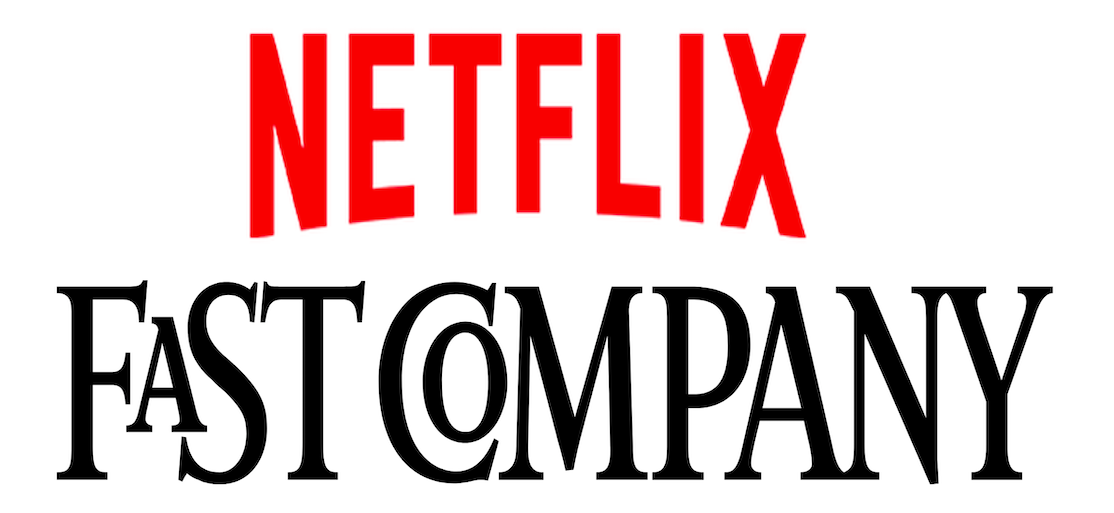
How’s that for a wordy title? Kind of reminds me of the old song “the hip bone’s connected to the thigh bone…” Well I want to give credit where credit is due and the inspiration for this pieces comes from something I read on HBR.org.
Entitled To See the Future of Competition, Look at Netflix, it’s a 2018 piece penned by Bill Taylor, co-founder of Fast Company. and the author of Simply Brilliant: How Great Organizations Do Ordinary Things in Extraordinary Ways.
In his piece Taylor expertly shares “three lessons from the rise of Netflix that apply to every company.” Below are the lessons Taylor laid out along with some of his rationale followed by my own editorial comments.
1. Big data is powerful, but big data plus big ideas is transformational.
BT: Netflix is a technology juggernaut whose analytics, algorithms, and digital-streaming innovations have changed how customers watch movies and TV shows. But this technology has always been in service of a unique point of view — building a platform that shapes what customers watch, not just how they watch.
Key lesson: Technology matters most when it is in the service of a compelling strategy.
My take: Taylor makes the point that it’s not just the data but what you do with it quoting Netflix CEO Reed Hastings when asked about the Netflix model as it relates to data. “The real problem we’re trying to solve is, ‘How do you transform selection so that consumers can find a steady stream of [entertainment] they love?’ We give everyone a platform to broaden their tastes.”
Taylor’s line about when tech matters most conjures up the now classic line: It’s not big data. It’s the right data. Well it is for sure the right data but it doesn’t end there. It’s what brands DO what the right data. It’s in the way that they use it, to paraphrase Eric Clapton.
How is your brand using the right data?
Are using this right data as a means to improve CX? To make an experience uber relevant? To find that steady stream of entertainment that is germane to them?
#2. If you aim to disrupt an industry, you must be willing to disrupt yourself.
BT: Netflix could be the dictionary definition of a Silicon Valley disruptor, a new entrant that reshaped the logic of an entire industry. Yet what’s truly remarkable about the company’s trajectory over the last two decades is how dramatically it has disrupted itself in service of its mission.
Key lesson: For companies and leaders alike, you can’t let what you know, all your past success, limit what you can imagine going forward.
My take: How many times have we heard the word “disrupt” bandied about the past 10+ years? Disrupt this. Disrupt that. The word and derivations thereof got completely watered down. Everyone and their brother were out to disrupt everything!
However, even with said watering down, there were those out there who got the art of disruption. They understood it. They talked it and walked it. But they did so with a purpose. They did so with a strategy. They did so by staying in their lanes. Netflix did not go from renting DVDs to selling ice cream, did it?
No they went from not only delivering the content but to making it as well. Taylor nailed it writing “At every step, Netflix’s dramatic strategic moves invited external skepticism and required deep internal rethinking of what had worked before.”
At. Every. Step.
Catch that? No stone unturned. The smallest of details. The finest of tooth combs, whatever the hell they are. Point being: they made very strategic moves, ignored the critics and disrupted and entire industry like perhaps never done before.
#3. Strategy is culture, culture is strategy.
BT: “What struck me about Reed Hastings (CEO) from the first time I met him is that he and his colleagues think just as rigorously about people and culture as they do about digital streaming and content. When it comes to who it hires and what it promises them, how it makes decisions and shares information, even what it does about vacations, Netflix has invented (and reinvented) a range of practices that are designed explicitly to connect what the company aims to achieve in the marketplace to how it organizes the workplace.”
Key lesson: Great companies understand that they have to work as distinctively as they hope to compete.
My take: Ok, I know what you’re thinking. Here we go again. Another person espousing the virtues of culture in the workplace. ‘Go ahead, Steve. Tell us how important culture is, yadda, yadda and yadda when we know damn well it’s all lip service. People don’t matter. All that matters is making money.’
Well I am here to tell you that it is NOT all lip service. There are in fact plenty of companies who do in fact value people and place a great deal of importance on culture. I know lots of leaders, personally, who unequivocally place a very high value on culture, even higher than talent in many cases.
Wrap Up
It is always a risk, as Taylor very astutely points out, to “learn too much from the performance of a single organization.” And as like so many other things in life, let alone business, you need to find what works for you and your company.
Yes, read how others like a Netflix have done it and still do it but at the end of the working day, your company is not Netflix. And they are not you. Take what you learn by reading and observing then carve your own path, do your own thing, make up your own mind.
And trust me, you will be inherently better off.